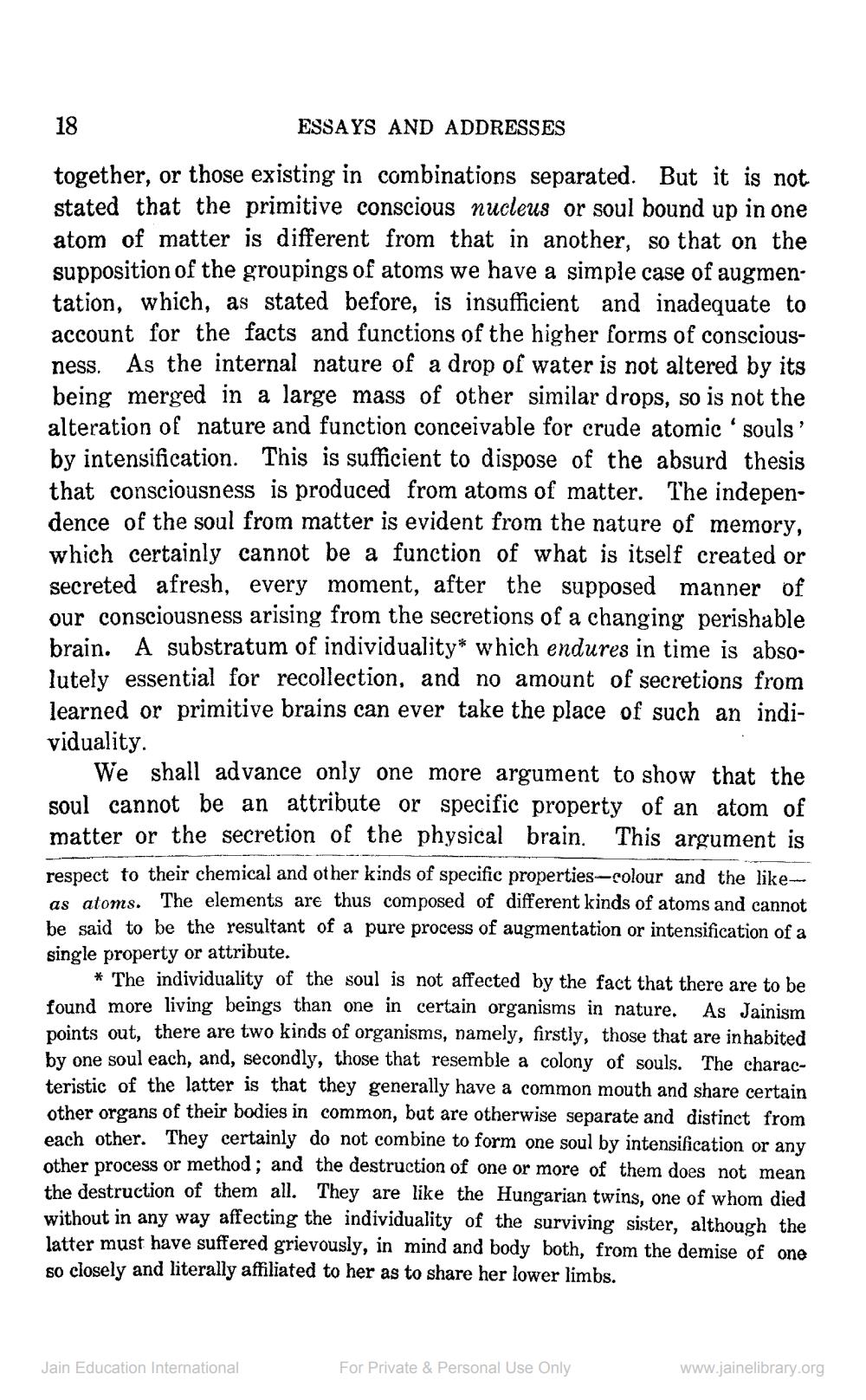________________
18
ESSAYS AND ADDRESSES together, or those existing in combinations separated. But it is not stated that the primitive conscious nucleus or soul bound up in one atom of matter is different from that in another, so that on the supposition of the groupings of atoms we have a simple case of augmentation, which, as stated before, is insufficient and inadequate to account for the facts and functions of the higher forms of consciousness. As the internal nature of a drop of water is not altered by its being merged in a large mass of other similar drops, so is not the alteration of nature and function conceivable for crude atomic' souls' by intensification. This is sufficient to dispose of the absurd thesis that consciousness is produced from atoms of matter. The independence of the soul from matter is evident from the nature of memory, which certainly cannot be a function of what is itself created or secreted afresh, every moment, after the supposed manner of our consciousness arising from the secretions of a changing perishable brain. A substratum of individuality* which endures in time is absolutely essential for recollection, and no amount of secretions from learned or primitive brains can ever take the place of such an individuality.
We shall advance only one more argument to show that the soul cannot be an attribute or specific property of an atom of matter or the secretion of the physical brain. This argument is respect to their chemical and other kinds of specific properties-colour and the likeas atoms. The elements are thus composed of different kinds of atoms and cannot be said to be the resultant of a pure process of augmentation or intensification of a single property or attribute.
* The individuality of the soul is not affected by the fact that there are to be found more living beings than one in certain organisms in nature. As Jainism points out, there are two kinds of organisms, namely, firstly, those that are inhabited by one soul each, and, secondly, those that resemble a colony of souls. teristic of the latter is that they generally have a common mouth and share certain other organs of their bodies in common, but are otherwise separate and distinct from each other. They certainly do not combine to form one soul by intensification or any other process or method; and the destruction of one or more of them does not mean the destruction of them all. They are like the Hungarian twins, one of whom died without in any way affecting the individuality of the surviving sister, although the latter must have suffered grievously, in mind and body both, from the demise of one so closely and literally affiliated to her as to share her lower limbs.
Jain Education International
For Private & Personal Use Only
www.jainelibrary.org




